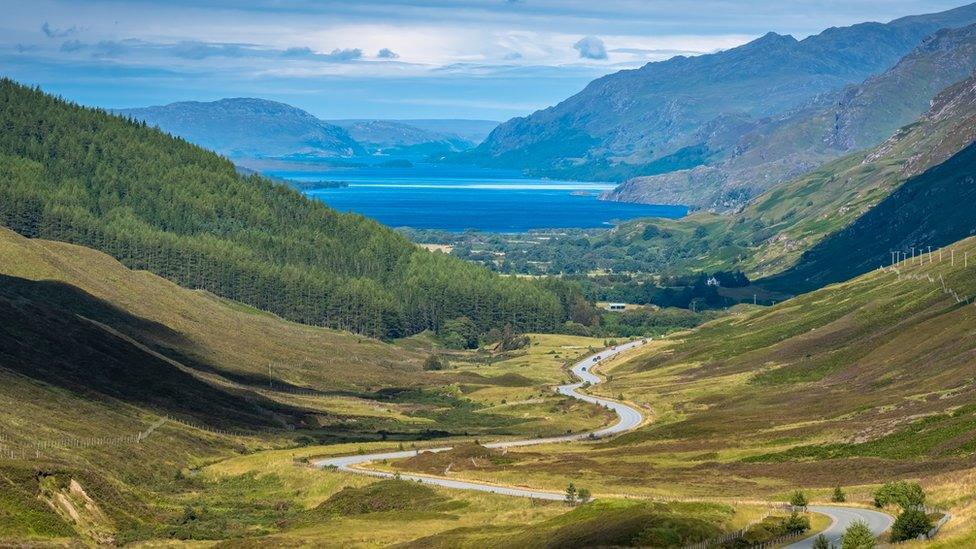Scotland set for hottest June on record, says Met Office
- Published

Nairn on the Moray Firth coast has seen weeks of sunshine
Scotland - along with the rest of the UK - is on course for its hottest June on record, the Met Office has said.
It said records going back to 1884 would likely be broken in terms of average daily temperature and average maximum temperature.
The hottest temperature Scotland had this month was 30.7C at Threave in Dumfries and Galloway on 12 June.
This month has seen water scarcity warnings and also large wildfires in parts of Scotland.
The Met Office expects to release its full statistics for June next Monday.
But it said provisional figures suggested this month would break the previous record set in June 1940.
The Met Office's Mike Kendon said warm and humid air had been a dominant feature of the weather.
He said: "What has been particularly unusual is the persistent warmth for much of the month, with temperatures reaching 25C widely for at least a fortnight, and at times 28 to 30C - whereas we would more typically expect maximum temperatures in the high teens or low 20s at this time of year."
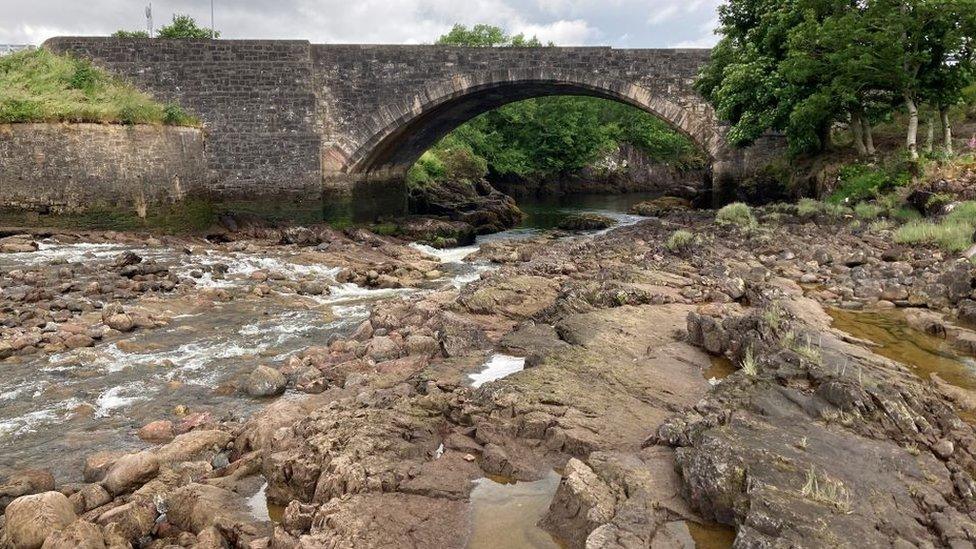
George Urquhart, who took this picture, said the River Ewe near Poolewe, Wester Ross, was in desperate need of rain this month
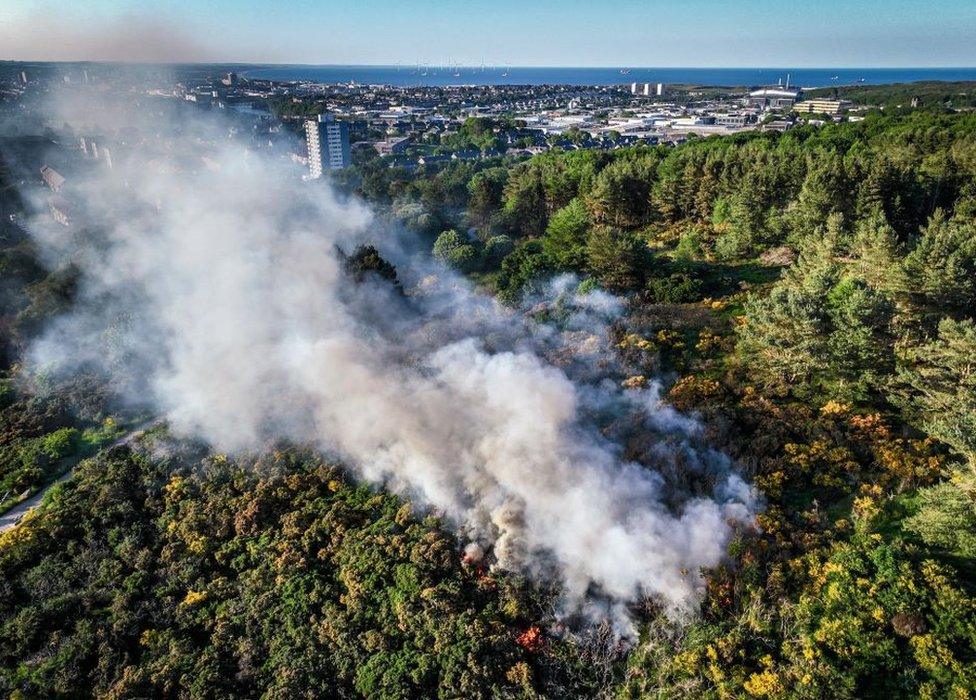
Wildfire incidents included one at The Gramps in Aberdeen
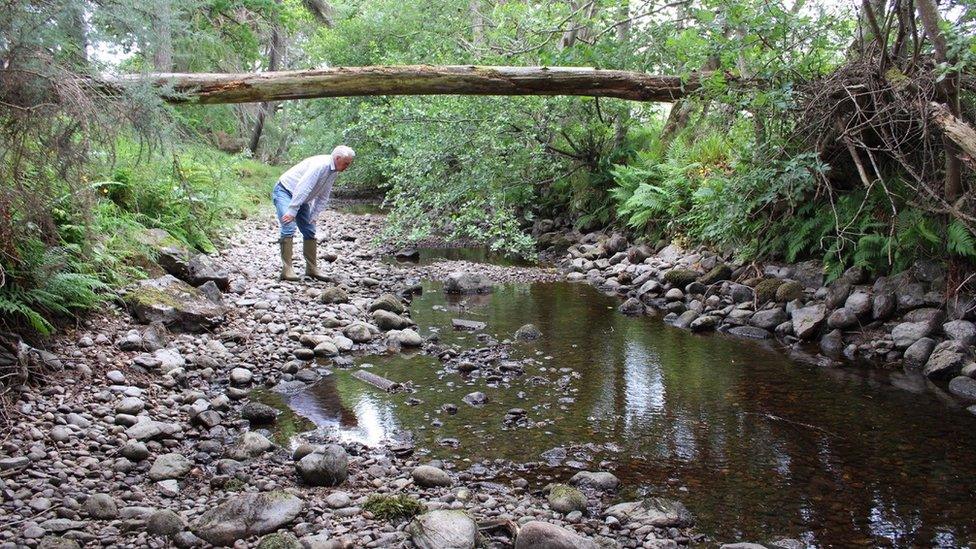
Ness District Salmon Fishery Board, helped by anglers, rescued fish from the River Ness' Holm Burn after water levels fell
In Scotland, the Scottish Environment Protection Agency (Sepa) has been warning of water scarcity issues.
Part of the Esk area of Dumfriesshire and the Loch Maree area of the Highlands have been under Sepa's highest warning level - significant.
Scottish Water appealed to its customers across Scotland to help conserve supplies, while some private water supplies in the Highland Council area dried up.
In the dry conditions, firefighters battled large wildfires near Daviot and Fort William in the Highlands, as well as in Aberdeen.
Ness District Salmon Fishery Board has blamed the weather and hydro-electric schemes for record low levels on Loch Ness and the River Ness.
Board members and anglers rescued fish and eels trapped in drying-up pools of Inverness' Holm Burn, which flows into the Ness.
SSE Renewables said the low water levels were directly linked to the dry weather, adding it used water for hydro schemes responsibly and in line with its environmental obligations.
Western Isles-based meteorologist Dr Eddy Graham said Scotland would likely see June's conditions again because of climate change.
He said: "No surprise really, given the persistence of extreme warmth and high humidity during most of the month, acting in concertina with extraordinary marine heatwave around our coasts.
"Such extreme weather events are now becoming increasingly common in Scotland due to the continued advancement of human-caused climate change."
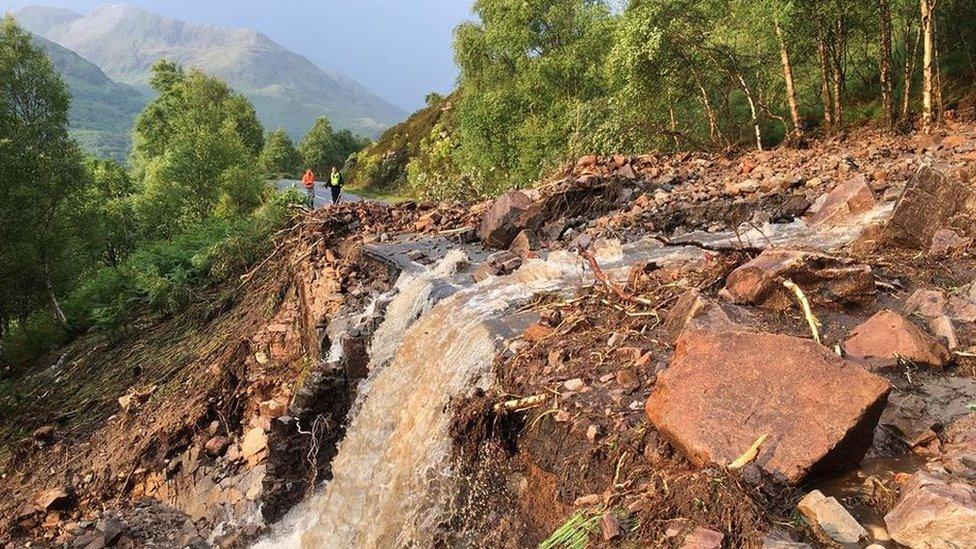
A large landslide on the B863 left the road badly damaged

Scotland vs Georgia at Hampden was hit by heavy rain that punctuated June's dry weather
The days of hot weather and sunshine have been punctuated by thunderstorms and heavy downpours.
Parts of the West Highland Line in Lochaber had to be repaired following flood damage, while damage to a section of the B863 Glencoe-Kinlochleven road is expected to take weeks to repair.
A driver had a lucky escape when landslides hit the B863.
After finding the road blocked by debris, the woman made a three-point turn before her car came within 100m (328ft) of a second, larger landslide containing about 100 tonnes of boulders, mud and trees.
Members of Glencoe Mountain Rescue Team gave the woman a piggy back to safety over knee-deep mud.
International football was also affected by June's thundery downpours, with Scotland's Euro 2024 qualifier against Georgia at Hampden in Glasgow having a 90-minute delay due to rain.
Related topics
- Published17 June 2023

- Published16 June 2023
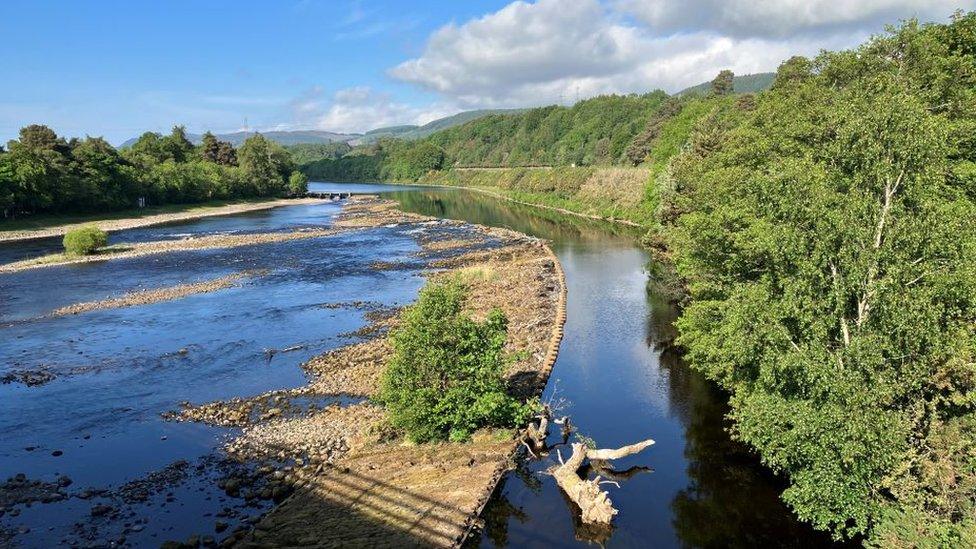
- Published15 June 2023
